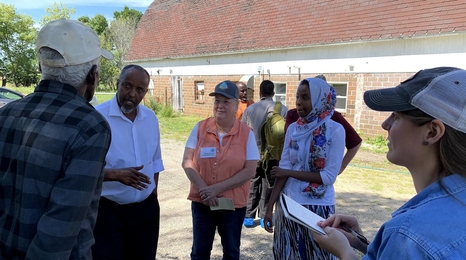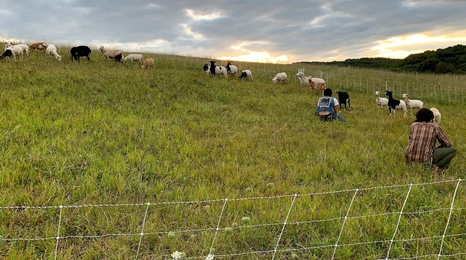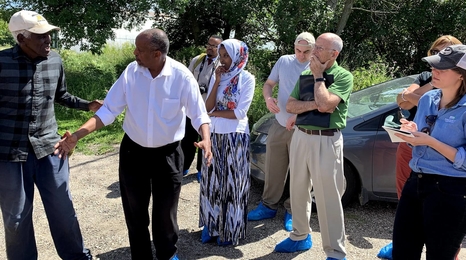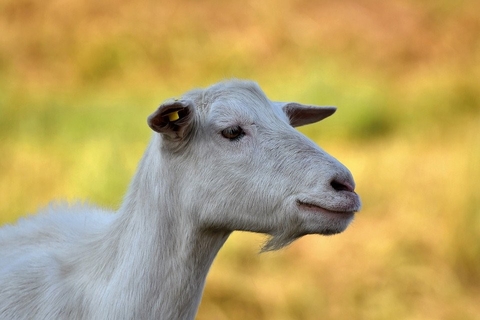Halal and kosher are faith practices related to foods that are permissible to eat. Both present market opportunities for Minnesota farmers and businesses.
The University of Minnesota Extension Regional Sustainable Development Partnerships (RSDP) recently partnered with the Minnesota Department of Agriculture (MDA), Agricultural Utilization Research Institute (AURI), farmers, business owners and members of the Muslim and Jewish faith communities to explore dietary and processing requirements associated with each practice, and opportunities for market entry in Minnesota. The report found that demand for Minnesota-produced halal and kosher meats currently exceeds supply.
“Goat meat for many of us is considered a specialty food, but for Somali communities is a staple food,” explained Serdar Mamedov, a University of Minnesota Extension educator and Central RSDP board member working on the project. “At this time fresh goat meat is not available, and all they have access to is imported frozen meat and the quality isn’t the best. They would like to have something that is raised locally.”
A team of researchers and community stakeholders, led by Extension, analyzed regulatory oversights, certifications, meat processing availability and animal welfare rules for both practices. The team looked at opportunities and barriers to market growth, as well as consumer concerns and preferences. Findings included:
- The kosher market and growing halal market present unrealized opportunities for Minnesota farmers, meat producers and emerging businesses.
- Currently, nearly all of the halal goat meat purchased in Minnesota is imported frozen from Australia and New Zealand.
- In Minnesota, both halal and kosher labeling are protected under state statute. The respective laws are similar but contain a key difference in labeling requirements; kosher must have a written label, while halal can be oral or written statements.
- Halal and kosher consumers, like the Christian and secular community, have demand patterns based on seasonal events and holidays. Around these holidays, demand for certain types or cuts of meat increases.
- Animal welfare and the respectful treatment of animals is a central tenet to both halal and kosher guidance. Both USDA and MDA inspectors are trained in the requirements of religious slaughter standards.
- In Minnesota, there is one dedicated kosher processing plant located in Dawson.
- Minnesota’s halal meat market is concentrated in metropolitan areas, but there is demand for halal meat in small-to mid-sized towns throughout the state. Willmar, Fairmont and Pelican Rapids, for example, all have halal consumers and small halal grocers that serve these populations.
“These findings show the opportunity for multiple benefits to Minnesota farmers and consumers to create supply chains for local, sustainably raised meat for a variety of communities in our state,” said Kathy Draeger, RSDP statewide director and the study’s principal investigator. “The benefits can include building bridges among cultures, providing additional farm income and diversification, and import substitution for meat that could be produced here.”
The Halal and Kosher Minnesota Meat Market Assessment is publicly available.





